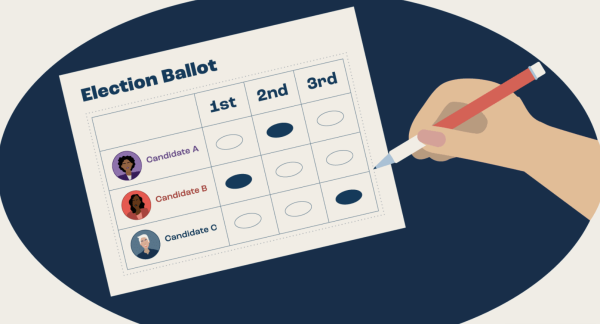The SAT is a biased test. End it now.
The SAT testing period is a time that all students dread. It feels like your future hangs on this test, and if you don’t do well, you should give up your dream college. Is it fair that some groups have to fear the test more than others?
In 2020, the College Board released SAT test score percentiles among different demographic groups. The report states that only 3 percent of African American test takers receive above 1300, while 17 percent of white test takers receive 1300 or higher.
Not only that, both Black and Latino students got lower scores on the SAT, especially the math section, according to a study of more than 2.1 million 2020 high school graduates by The Brookings Institution. The research shows that “over half (59 percent) of white and four-fifths of Asian test takers met the college readiness math benchmark, compared to less than a quarter of Black students and under a third of Hispanic or Latino students.”
This poses a threat to the future of these students, especially those who wish to attend a top university.
Because of this, it’s fair to argue that the SAT is racially unjust and shows little reflection of one’s capabilities. This rings true since the SAT only tests students on two subjects, reading and math, and all students don’t have equal access to these courses.
Another factor to consider: in our state, SAT scores have been on an overall decline since 2017. That year, about 13 percent of all students were receiving top scores. Now only 9 percent of students are reaching the same threshold, according to the Illinois Report Card.
These declines are more prominent among Black test takers as only a staggering 3 percent of students achieved top scores in 2017, and currently, only an abysmal 1.6 percent reach the same score.
Because of factors like these, some colleges, such as the California State schools, are opting to deny the SAT as a required or supplemental option. According to the school, “The decision by the Board of Trustees aligns with California State University’s mission of access and our efforts to provide high-quality college degrees for students of all backgrounds.”
To remedy these disparities within the testing system, there are multiple steps we should take. First, we should ensure that all communities have equitable access to education and testing resources. Some schools don’t even have access to AP courses, so how can they answer questions requiring that type of comprehension?
Additionally, we should re-evaluate how students are preparing for the SAT and how the SAT is formatted. A large factor in the under-preparedness of students is the encouragement of Black students within the educational system. We need to ensure that Black students have the resources available to be successful in school, and the encouragement to succeed and do great.
Some believe that removing the SAT would violate years of tradition in the college selection process, undermining those who have genuine talent and stunting a future generation of change-makers. While removing the SAT would change years of tradition, its supporters need to realize that the only time we make strides as a society is when we implement change. The current year of the college application process proved that we could do without SATs, as this year and the ones before were test-optional. Additionally, students who are intelligent enough to attend top universities will have other aspects of their resumes that highlight their accomplishments other than the SAT.
Overall, we need to realize that SAT testing should become a practice of the past. No more should we prioritize high test scores to capitalize off the general population. We also need to provide more low-income areas with equitable education compared to high-income neighborhoods.
Through this, we can ultimately create a more equal education system for all.

